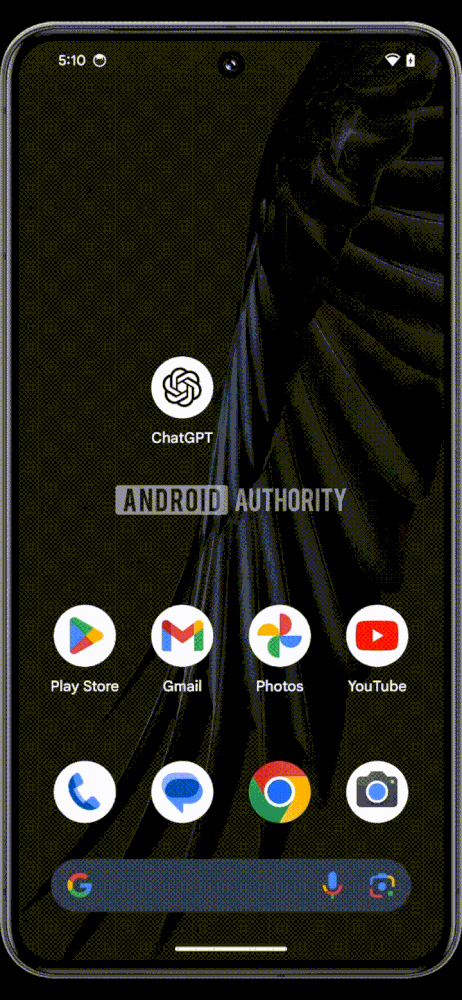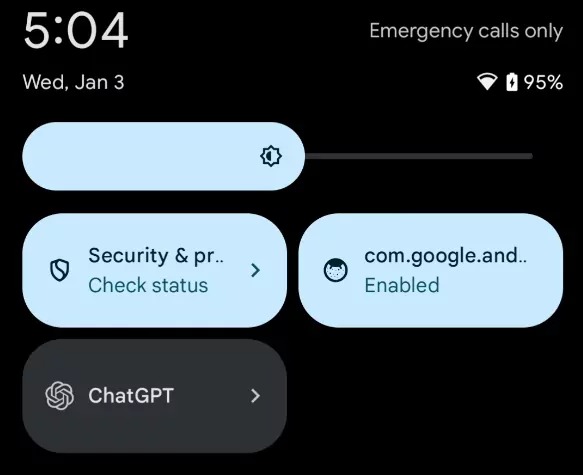The source code for the latest Android version of ChatGPT suggests that OpenAI would like to make its chatbot a voice assistant, like Google Assistant. Enough to tackle a market that is losing momentum with a significant innovation.
The OpenAI company could well attack a Google market: that of voice assistants on Android. On Android smartphones, Google Assistant has been in the lead for a long time. But with ChatGPT, it could well have a serious competitor, if the findings ofAndroid Authority in the application source code.
A hidden voice assistant feature in ChatGPT
A new feature has been discovered in the application code, disabled by default. Once activated and launched manually, a swirling animation appears: this is the same as ChatGPT Voice. As a reminder, this is the function of “ voice chat » with the chatbot. The idea seems to be able to activate it at any time, even when you are not in the ChatGPT application. Right now, it seems impossible to use it properly, which probably implies that it’s not quite ready. The code for using ChatGPT as the default voice assistant in Android appears not to be complete. But according to Android expert journalist Mishaal Rahman, all this suggests that OpenAI intends to make its chatbot a voice assistant that could be launched by pressing a button, by making a gesture.

OpenAI seems to want to make ChatGPT easier to use. Recently, a new tile, a new quick setting, was added in the application source code. This allows you to launch ChatGPT Voice from the quick settings, without having to search for the application. According to Mishaal Rahman, this feature would require having a ChatGPT Plus subscription: for the moment, it is not functional. It is also possible that there is a charge for using ChatGPT as a voice assistant.
Why LLMs Could Be Better Than Voice Assistants
The problem with voice assistants is that they are often little “ intelligent ”, in the sense that they struggle to hold real conversations, lack spontaneity in their responses and interpret questions literally. This is where LLMs (or large language models) have their card to play: thanks to their different artificial intelligence design, they are capable of better “ to understand » their users, but also to better respond to them.

Even Google seems to be doing an about-face on voice assistants, developing its own big language model, Gemini. And its own chatbot, Google Bard, launched several months ago. The Android application will arrive soon: it is Assistant with Bard. We can also think that within a few months or a few years, Assistant with Bard will replace the technology that makes Google Assistant work, completely or partially. This is why OpenAI has every interest in launching its voice assistant: grabbing market share from Google, but also from Amazon with Alexa for example.
Want to join a community of enthusiasts? Our Discord welcomes you, it is a place of mutual help and passion around tech.
